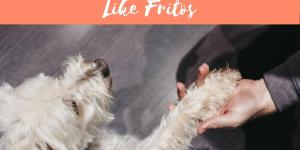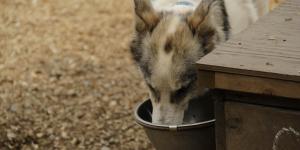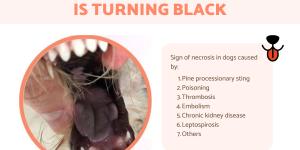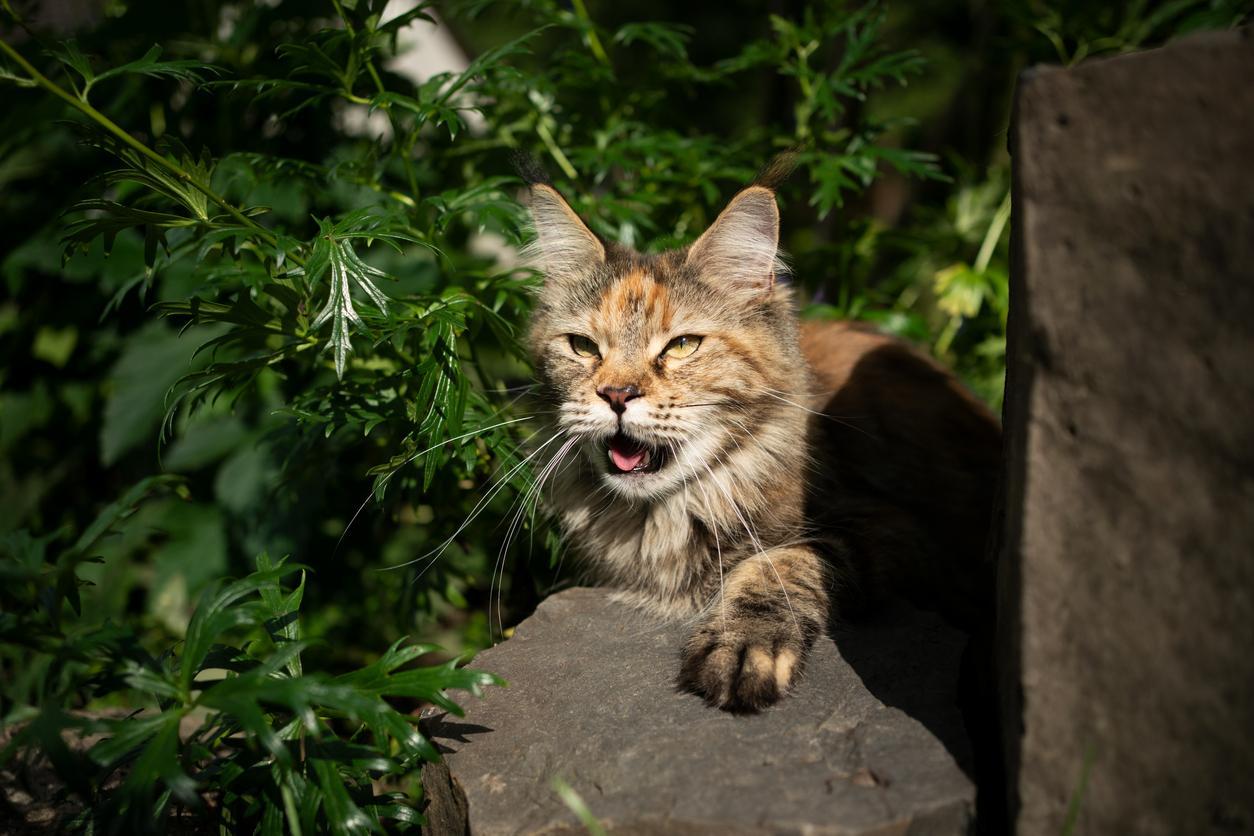My Cat Is Panting Like a Dog



See files for Cats
Panting is a behavior we most often associate with canines, not felines. Although dogs of all sizes will pant, it is often most noticeable in big dogs which pant with a large tongue sticking out. In comparison, a cat sticking out their tongue and panting is not something we associate as much with cats. This is such that, when we do see a cat panting like a dog, we might think there is something wrong. While a cat may pant due to environmental factors, there are some diseases and conditions which have panting as a symptom.
At AnimalWised, we understand why my cat is panting like a dog. We help you to understand when this is a normal responsive behavior and when it might be a sign they need some veterinary help.
Normal panting in cats
If you see your cat panting like a dog, there are times when this is considered normal. Panting is a dyspnoic (labored) and excessive breathing which requires the mouth to be open. Cats breath quickly when panting, usually with their tongue sticking out. Cats normally breathe through their nose, meaning normal panting is usually due to one of the following causes:
- Excitement or exercise: when a cat is excited due to certain stimuli or they have just exercised, it is normal for them pant. Since kittens are generally more energetic, playful and active than older cats, it is more common for kittens to do so. When exercising, cats of all ages will have an increase in heart rate and respiration. This leads to excessive breathing which results in panting. The cat needs to pant to respire more oxygen for their organism to function.
- Childbirth: the effort and exhaustion of labor has an acute effect on the mother cat. Their body will respond in many ways, including in panting. It is normal for cats to continue panting hours after giving birth. However, if this panting lasts for days, it may be a sing of labor complications. If this is the case, take the cat and kittens to a veterinarian. Our article on common cat birthing difficulties can provide some background.
- High temperatures: if you observe your cat panting when it is hot, it is important to remember felines do not have sweat glands on most of their body. For this reason, they need to find other ways to regulate their body temperature. Panting is one of them. This is the same as canines and one of the main reasons a cat pants like a dog. However, if we see the cat is drooling when they are panting, it could be a sign they are overheating. This may also be accompanied by other signs such as hypersalivation and general weakness. In these cases, we need to hydrate the cat and keep them cool. Do not shock them cold.
- Fear or stress: the reasons why a cat is panting are not only physiological. This can also be a psychological response. If a cat is panting, it could be due to stressors in their environment. These can be acute such as loud noises or traumatic incidents. They may also be chronic and as a result of prolonged exposure to stressors, especially when it involves other members of the household. Stress in cats can result in panting, dilated pupils piloerection or increased heart rate, among others.

Why is my cat panting like a dog?
If your cat is panting like a dog, i.e. they are panting a lot, it may be cause for concern. Not only may they be affected by the acute problems indicated above, but it is possibly a symptom of a certain disease. Often these diseases are respiratory and cause breathing difficulties, but not all of them do. Anemia, heart disease, hormonal imbalance and endocrine disorders are some others.
Respiratory diseases
One of the most common respiratory diseases which leads to panting in kittens is feline asthma. You may notice this first from other symptoms such as wheezing when breathing, but panting can occur with asthma attacks. The symptoms of asthma are due to constriction of the lower respiratory tract which makes it difficult for aire to pass through. The cat will pant as a means of opening up their airways.
Asthma is not the only respiratory disease which can cause panting like a dog. Pleural effusion consists of an accumulation of fluid in the space between the lung and its covering membrane, known as the ‘pleura’. This fluid can be blood (hemothorax), water (hydrothorax) or lymph fluid (chylothorax). It can be a result of high blood pressure, infectious peritonitis or various other causes.
Severe anemia
Cats can suffer from various types of anemia, some of which are very serious. They reduce the hematocrit (percentage of red blood cells in the cat's blood volume) and cause poor oxygenation of the tissues by blood cells. Signs associated with anemia in cats are tachycardia, increased respiratory rate, panting, weakness and pale mucous membranes.
Heart disease
Heart disease is another clear cause of pathological panting in cats. Among them, congestive heart failure stands out. It is often caused by a heart disease called hypertrophic cardiomyopathy, sometimes related to feline hyperthyroidism or restrictive cardiomyopathy. Other problems can affect the heart's functionality. By increasing the cat's blood pressure, chronic kidney disease can also predispose to the development of congestive heart failure that produces a pleural effusion and makes it difficult for cats to breathe, causing them to pant.
Poisoning
Some drugs, foods or plants toxic to cats can intervene in the respiratory center of the animal. This affects the correct lung expansion for gas exchange and causes them to present respiratory distress (dyspnea). Panting like a dog is the result of this distress.
Diaphragmatic hernia
Cats may also pant when the chest space for lung expansion is reduced by the presence of abdominal viscera in the chest cavity, as happens with a diaphragmatic hernia. In diaphragmatic hernias, there is a discontinuity of the diaphragm, a structure that separates the abdominal cavity from the thoracic cavity. This can result in viscera such as the stomach, spleen, liver or intestine entering the wrong cavity.
Cats with diaphragmatic hernia will have shortness of breath and panting. They may also present with other signs such as thoracic rumbling, reduced lung sounds, regurgitation, vomiting, anorexia and dysphagia.

What to do if my cat is panting a lot?
If your cat has started panting like a dog, it is important we differentiate between a physiological response and a pathological symptom. It is possible the cat pants like a dog as a physical response, but they have conditions which exacerbate it. For example, obesity in cats can put strain on their respiration and result in excessive panting, especially after exercise.
When the cat has a pathological problem which has panting like a dog as a symptom, treatment will correspond to this issue. However, there are ways we can help the cat avoid panting due to various environmental and physiological factors. They include:
- Keep your cat hydrated: although cats love sunbathing and warm temperatures, they need protected when temperatures exceed 30 ºC/86 ºF. In this case, ensure they have shade, air condition the indoors where possible and maybe even prevent the cat from going outside. Most importantly, have plenty of cool fresh water to help them avoid dehydration. Our related article shows you some tips to encourage your cat drinking water.
- Avoid ingestion of toxic substances: poisoning from the ingestion of toxic substances can cause your cat to pant like a dog. This can be a precursor to toxic shock. Ensure you do not leave any substances in the home which can cause intoxication and always put them away after use. We should also avoid dirt and bacteria by keeping a clean home and cleaning their litter tray regularly.
- Control their weight: obesity and being overweight can also worsen certain diseases and make breathing more difficult. Keeping the cat healthy and ensuring they have a suitable diet will help to avoid these issues.
- Regular veterinary appointments: if your cat is panting like a dog and you do not know why, it is best to take them to a veterinarian. However, some diseases progress slowly and panting will not occur until they are advanced. Regular veterinary health checkups help to diagnose problems early and ensure a better prognosis after treatment.
This article is purely informative. AnimalWised does not have the authority to prescribe any veterinary treatment or create a diagnosis. We invite you to take your pet to the veterinarian if they are suffering from any condition or pain.
If you want to read similar articles to My Cat Is Panting Like a Dog, we recommend you visit our Other health problems category.
- Aybar, V ., et al. (2018). Clinical Manual of Feline Medicine. Ed.SM Publishing LTD. Sheffield, UK.






